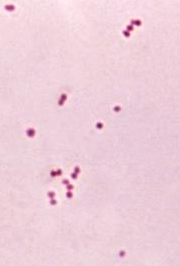In 2013, Princeton University reported eight students who contracted Neisseria meningitidis group B, which prompted the University to get approval to receive and administer the unapproved for use in the United States vaccine, Bexsero by Novartis.

Image/CDC
After the eighth case was confirmed, Princeton began the vaccination campaign last December and in the end inoculated 91% of those eligible.
Today, the university announced it would be holding meningitis B vaccine clinics this Saturday, Sept. 6, and next Tuesday, Sept. 9, at the Frist Campus Center, Level B in the Multipurpose Room.
The Centers for Disease Control and Prevention (CDC) recommends that all Princeton University undergraduate students and eligible graduate students, as well as members of the University community with specific medical conditions, receive a vaccine that helps protect against meningococcal disease caused by serogroup B bacteria.
All incoming freshmen and eligible graduate students, as well as eligible individuals who did not receive the vaccine last academic year, may receive the meningitis B vaccine at the September clinics.
Because protection provided by the first dose declines over time, two doses of the vaccine are needed for full immunity. Another vaccine clinic will be scheduled for October.
Meningitis B is a rare but aggressive disease and is the leading cause of meningococcal disease and septicemia in the developed world. Meningitis B can kill or cause serious, life-long disabilities within 24 hoursof symptom onset, leaving little time for intervention. Vaccination is therefore the best defense against this devastating disease.
Meningococcal disease is most commonly caused by one of the five main serogroups of meningococcal bacteria (A, B, C, W-135 and Y). Prior to the development of Bexsero, vaccines were only available for four of these serogroups, and a vaccine to protect against serogroup B was the remaining piece needed to provide populations with broad-spectrum protection against all five serogroups, which together cause the majority of cases in the world.

